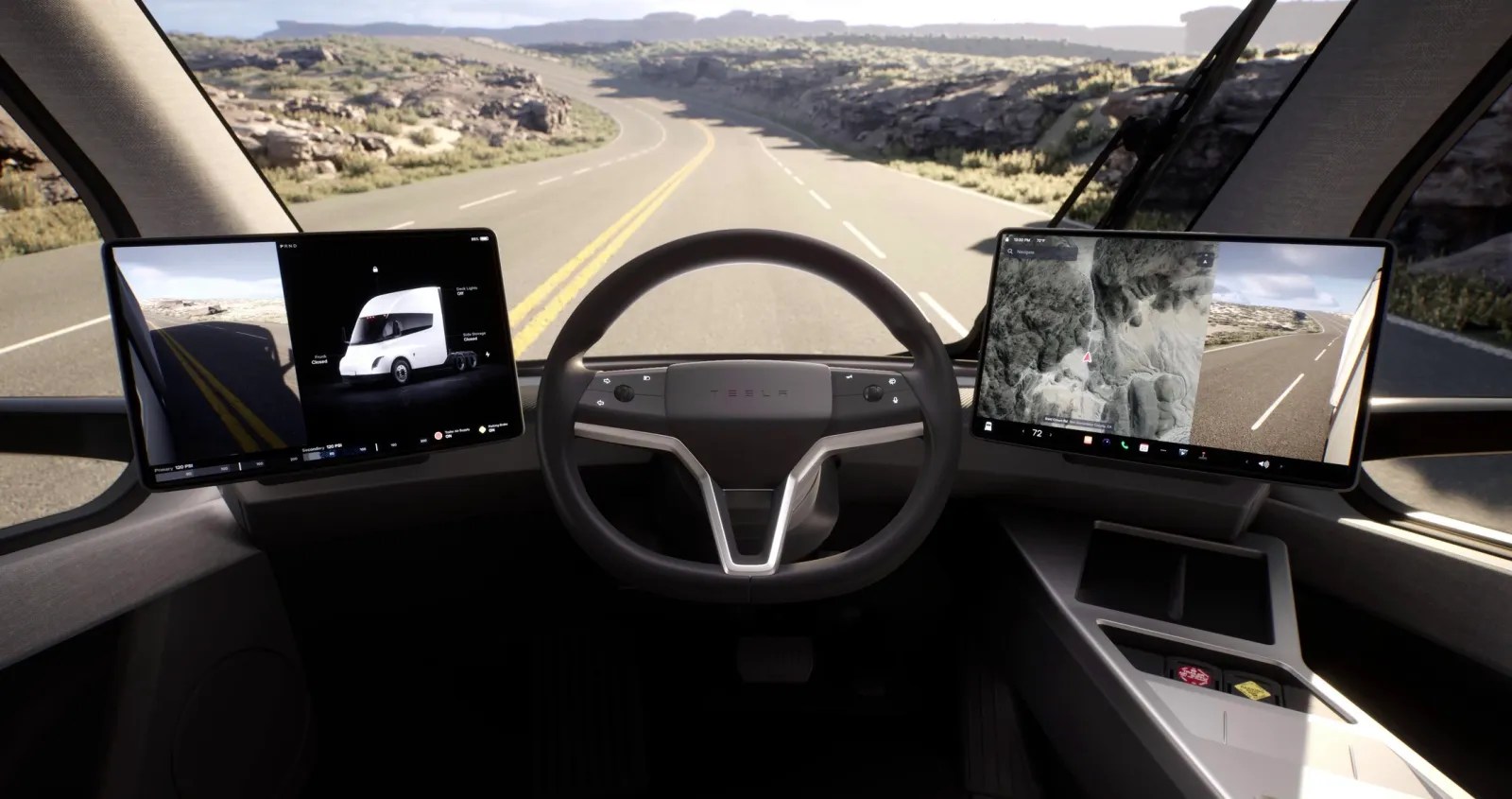Uber Freight and Tesla Forge Path to Electric Trucking Future with Innovative Partnership
The logistics industry stands at the precipice of an electric revolution as Uber Freight and Tesla join forces to tackle one of commercial trucking's most persistent challenges. This groundbreaking collaboration represents a strategic leap toward sustainable freight transportation by addressing the critical economic barriers that have slowed electric truck adoption.
Key Highlights
- Program Name: Dedicated EV Fleet Accelerator Program
- Primary Partner: Tesla, featuring their Semi electric truck
- Core Solution: Combines purchase subsidies with guaranteed freight contracts
- Infrastructure Support: Route planning around Tesla's developing Semi Charger network
Breaking Down the Economic Barriers to Electric Truck Adoption
The transition to electric Class 8 trucks has faced significant headwinds despite growing environmental concerns and sustainability mandates. The most substantial obstacle remains the formidable upfront investment required for electric truck acquisition, which can be two to three times higher than comparable diesel counterparts. This financial hurdle has prevented many fleet operators from making the switch, even when long-term operational savings are evident.
Uber Freight's innovative program directly attacks this challenge through a multi-faceted approach that combines financial incentives with operational certainty. By providing purchase subsidies for the Tesla Semi, the program immediately reduces the capital expenditure barrier. More importantly, it couples this financial support with pre-arranged dedicated freight contracts, ensuring participants have immediate revenue streams to justify their investment.
The Tesla Semi: A Technical Marvel Ready for the Road
Tesla's entry into the Class 8 truck market represents one of the most anticipated developments in commercial transportation. The Tesla Semi promises remarkable performance characteristics that challenge conventional notions about electric truck capabilities:
| Specification | Value | Industry Comparison |
|---|---|---|
| Range | 500 miles | Superior to most electric competitors |
| Acceleration (0-60 mph) | 20 seconds (fully loaded) | Exceptional for Class 8 standards |
| Energy Consumption | <2 kWh/mile | Industry-leading efficiency |
| Charging Rate | 400 miles in 30 minutes | Revolutionary for commercial vehicles |
Strategic Infrastructure Integration
The program's sophistication extends beyond vehicle acquisition to encompass holistic operational planning. Recognizing that charging infrastructure represents another critical adoption barrier, Uber Freight has integrated route planning around Tesla's developing Semi Charger network. This strategic approach ensures that participating fleets can operate efficiently without worrying about range anxiety or charging availability.
Tesla's charging infrastructure deployment currently focuses on key freight corridors in the United States, with planned expansion to cover major transportation routes comprehensively. This synchronized development of both vehicles and charging solutions creates a compelling ecosystem for early adopters, significantly de-risking their transition to electric operations.
Transforming Freight Economics
The Uber Freight-Tesla partnership represents more than just another vehicle acquisition program—it signals a fundamental shift in how the logistics industry approaches capital investments in sustainable technology. By guaranteeing freight contracts alongside vehicle subsidies, the program creates unprecedented economic certainty for fleet operators.
This model could establish a new paradigm for accelerating the adoption of clean transportation technologies across the commercial sector. The guaranteed revenue stream mitigates financial risk while the subsidized acquisition cost improves return on investment calculations, making electric trucks financially viable for a broader range of operators.
Industry Implications and Future Outlook
This collaboration between a logistics technology leader and an electric vehicle innovator could catalyze widespread transformation throughout the trucking industry. Other manufacturers and logistics providers will likely develop similar programs, creating competitive pressure that accelerates both technological innovation and cost reduction.
The environmental impact potential is substantial. Class 8 trucks account for a disproportionate share of transportation emissions, and their electrification represents one of the most effective strategies for decarbonizing freight transportation. Programs like this could significantly advance sustainability goals while demonstrating the commercial viability of electric heavy-duty trucks.
Conclusion
The Uber Freight and Tesla Dedicated EV Fleet Accelerator Program represents a watershed moment for the commercial transportation industry. By addressing both economic and operational barriers simultaneously, this partnership has created a blueprint for accelerating the adoption of electric trucks at scale. As the program expands and Tesla's charging network grows, we can expect to see a dramatic acceleration in the electrification of freight transportation, ultimately leading to a more sustainable and efficient logistics ecosystem. This innovative approach demonstrates that with the right partnerships and business models, the transition to electric transportation can occur faster than previously imagined, benefiting operators, shippers, and the environment simultaneously.


